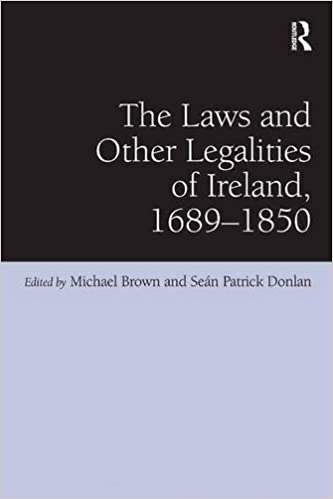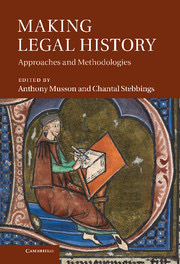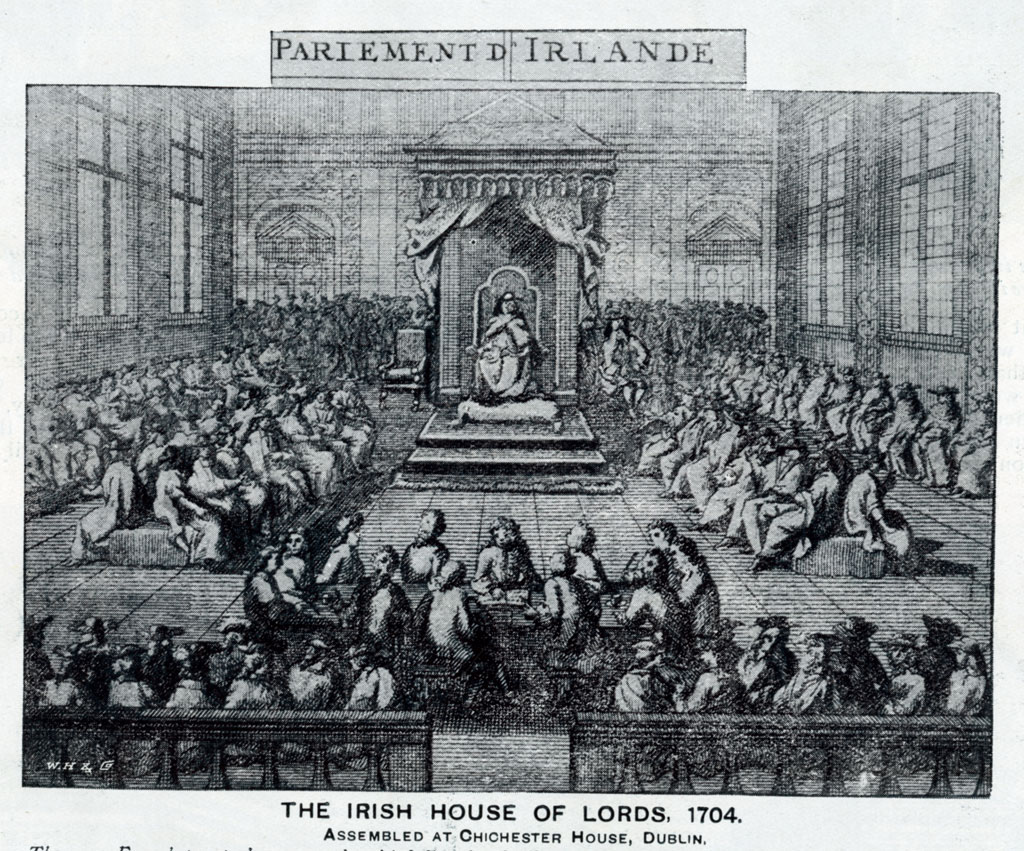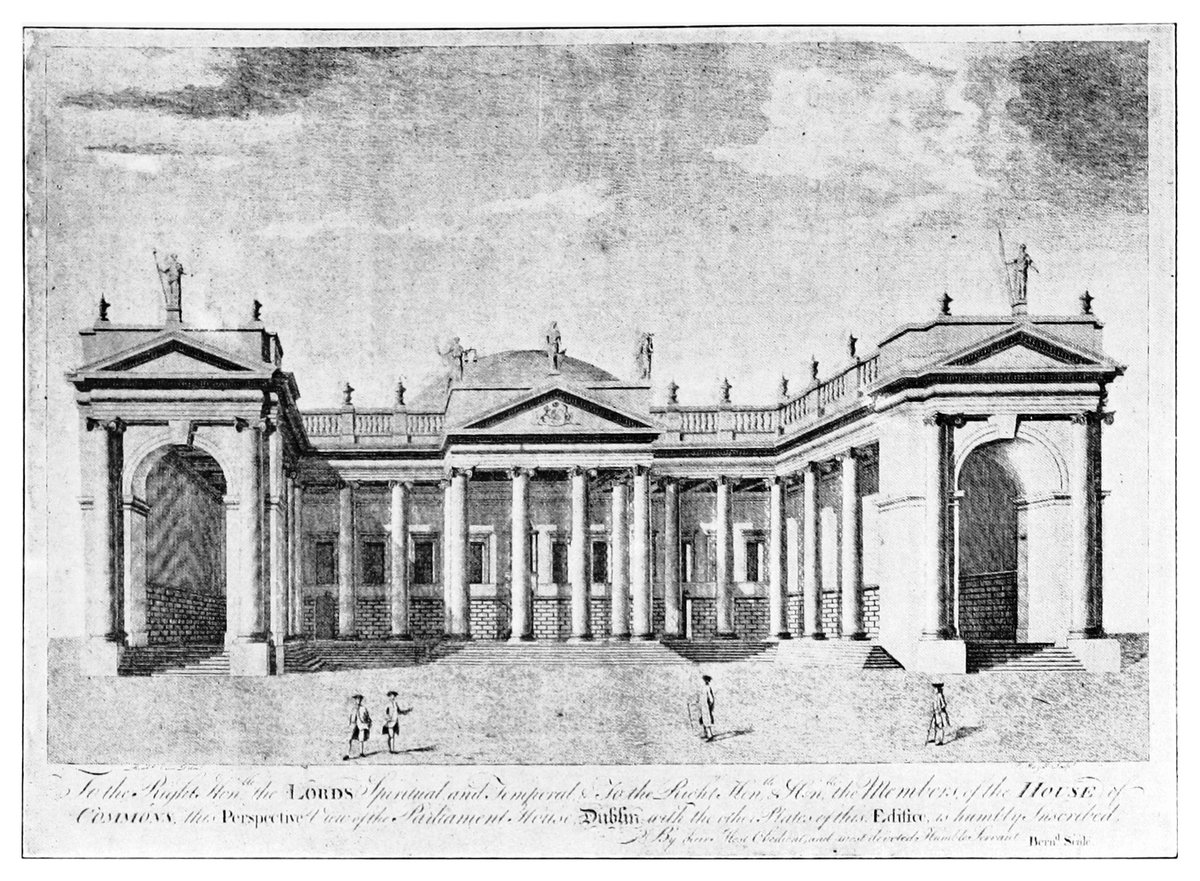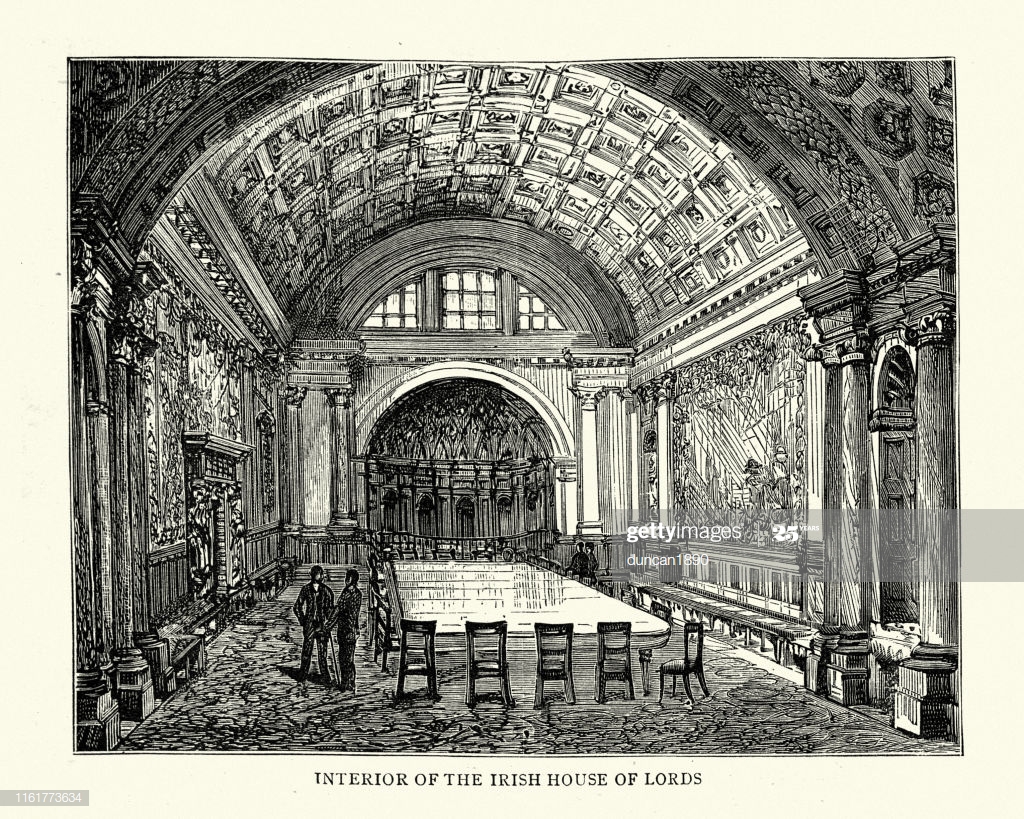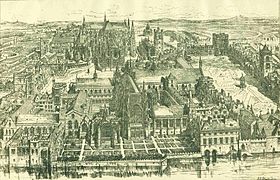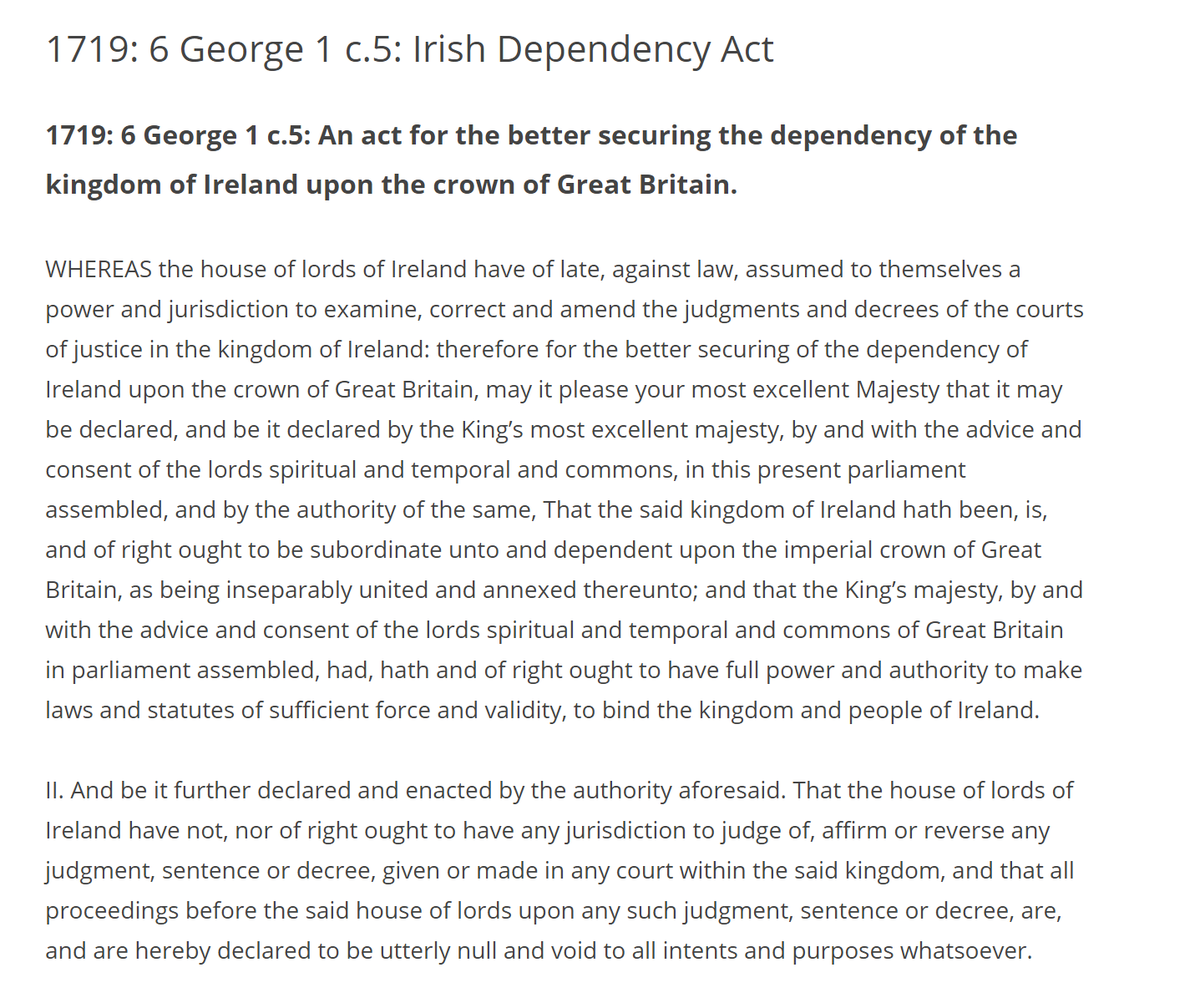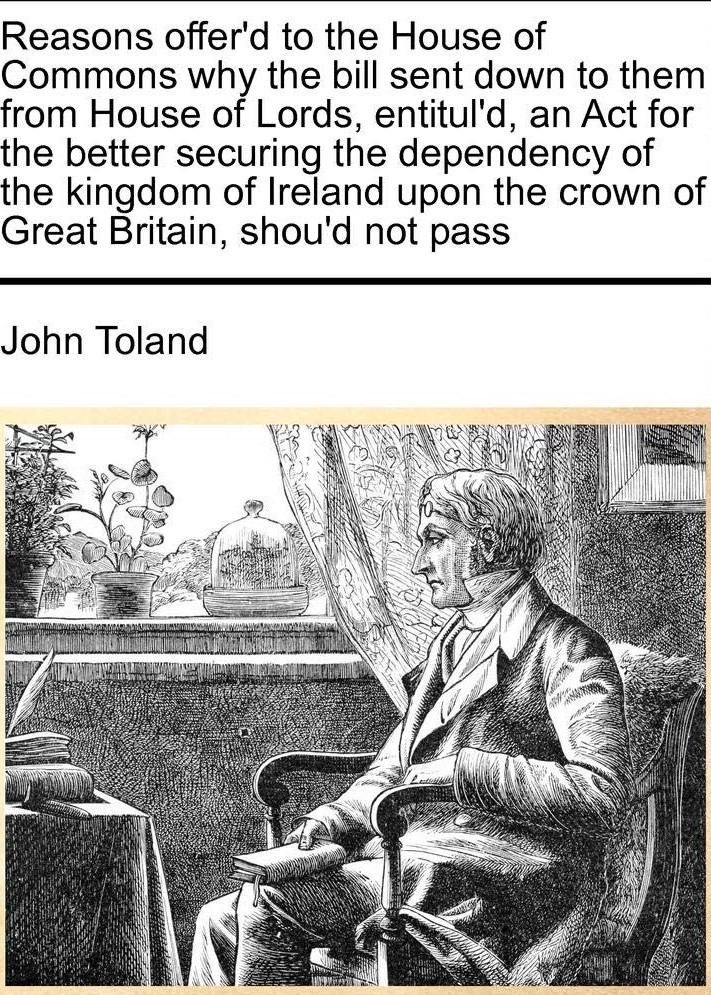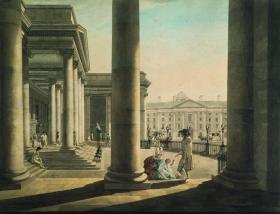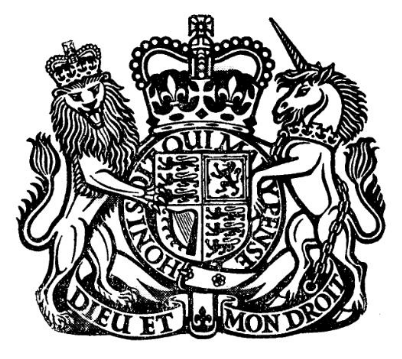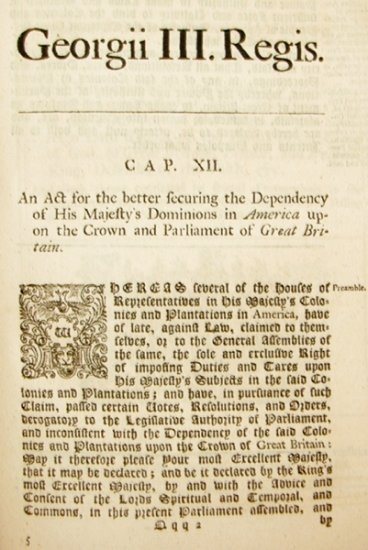Ever wondered how it came about that in Irish legal history before the establishment of the State, the ultimate Court in Ireland was the UK House of Lords?
Well, 215 years ago today on 25 May 1705 an Irish Tory MP Maurice Annesley petitioned English House of Lords for relief
Well, 215 years ago today on 25 May 1705 an Irish Tory MP Maurice Annesley petitioned English House of Lords for relief
from & #39;the great oppressions he lies under& #39;. The Irish Court of Exchequer had heard a lawsuit between Maurice Annesley and his cousin Hester Sherlock over which of them had the right to possession of certain lands at Naas, County Kildare. The Irish Court of Exchequer found in
Annesley& #39;s favour; Mrs. Sherlock appealed to the Irish House of Lords which upheld her appeal and found in her favour. Annesley then invoked the long-disputed jurisdiction of the English House of Lords to hear appeals from the Irish courts, and that English House of Lords found
in his favour.
The Irish Court of Exchequer duly complied with the decree of the British House, but Mrs. Sherlock appealed again to the Irish house, which ordered the Barons of the Exchequer to comply with the Irish House of Lords decree and, when they refused, imprisoned them
The Irish Court of Exchequer duly complied with the decree of the British House, but Mrs. Sherlock appealed again to the Irish house, which ordered the Barons of the Exchequer to comply with the Irish House of Lords decree and, when they refused, imprisoned them
for contempt.
The political uproar was out of all proportion to the importance of the lawsuit itself: in the words of John Pocklington, one of the imprisoned Barons, "a flame broke forth, arousing the country& #39;s last resentment" (i.e. against the judges).
The ultimate response
The political uproar was out of all proportion to the importance of the lawsuit itself: in the words of John Pocklington, one of the imprisoned Barons, "a flame broke forth, arousing the country& #39;s last resentment" (i.e. against the judges).
The ultimate response
was a 1719 Act of the English Parliament entitled as an "Act for the better securing the dependency of the Kingdom of Ireland on the Crown of Great Britain (6. Geo. I, c. 5)" which declared that it had the English laws for the Kingdom of Ireland, & that the English House of Lords
had appellate jurisdiction for Irish court cases.
Section I of the Act noted that the Irish House of Lords had recently "assumed to themselves a Power and Jurisdiction to examine, correct and amend" judgements of the Irish courts, which it held to be illegal. As such, it
Section I of the Act noted that the Irish House of Lords had recently "assumed to themselves a Power and Jurisdiction to examine, correct and amend" judgements of the Irish courts, which it held to be illegal. As such, it
declared that the Kingdom of Ireland was subordinate to and dependent upon the British crown, and that the King, with the advice and consent of the Parliament of Great Britain, had "full power and authority to make laws and statutes of sufficient validity to bind the Kingdom and
people of Ireland". Section II declared that the House of Lords of Ireland had no jurisdiction to judge, affirm or reverse any judgement, sentence or decree made in any court within the Kingdom of Ireland, and that all proceedings before the House upon any such matter was
declared to be null and void to all intents and purposes whatsoever.
It became known as the Declaratory Act, and the Dependency of Ireland on Great Britain Act. Along with Poynings& #39; Law, the Declaratory Act became a symbol of the subservience of the Parliament of Ireland.
The
It became known as the Declaratory Act, and the Dependency of Ireland on Great Britain Act. Along with Poynings& #39; Law, the Declaratory Act became a symbol of the subservience of the Parliament of Ireland.
The

 Read on Twitter
Read on Twitter